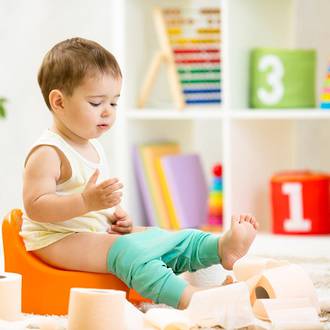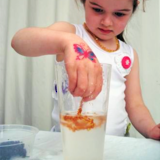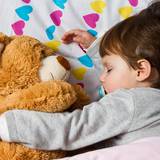Shop
01872
https://www.under5s.co.nz/shop/Hot+Topics+Articles/Health+%26+Wellbeing/Toddlers/Toilet+training+tips+for+toddlers.html
Toilet training tips for toddlers
|
Everyone's different, but children are usually ready to start toilet training somewhere between 18 months - 3.5 years on average. We take a look at some of the cues for toilet training readiness, managing poo issues and moving through each phase of the toilet training process at your toddler's pace.
|
You might also be interested in ...
Testing Baltic Amber jewellery for authenticity
Is your baby’s Baltic Amber necklace the real deal? There's a lot of amber on the market in New Zealand right now and at first glance it's difficult to tell if it's genuine Baltic Amber or plain amber, copal, or plastic. Try one of these tests to determine if the amber you have is authentic.
Reasons for bed wetting & how you can help
It may be of some comfort to know that wetting the bed is very common and the majority of children will grow out of it. We take a look at what causes bed wetting and how parents can help to manage it.
join usJoin us on social media for all our latest news. |
sign upSign up and receive our latest newsletters. |
|







Everyone's different, but children are usually ready to start toilet training somewhere between 18 months - 3.5 years on average.
We take a look at some of the cues for toilet training readiness, managing poo issues and moving through each phase of the toilet training process at your toddler's pace.
3 Toilet training tips for toddlers
1. Toilet training readiness
Cues that your toddler is ready to start toilet training includes the ability to have a dry nappy for a few hours over nap time, enough language to tell you before or after the event and enough dexterity to be able to get their pants down by themselves.
When you start toilet training your toddler, using undies instead of pull-ups is helpful for allowing them to feel when they are wet/dirty. However you might still need to use a pull up for swimming lessons, dance classes etc in the initial stages.
Keep the tone positive. If you're getting frustrated or there are more accidents than successes, take a break from toilet training for a few weeks and then try again.
It can take time for your toddler's psychological and physiological readiness to match. When it does, the toilet training process will go smoothly.
2. Things to try when you're toilet training your toddler
When it comes to toilet training toddlers, it often comes down to trial and error and what works best for your child.
Here are some tips you might like to try:
3. Managing your toddler's poo issues during toilet training
Some toddlers have problems with their bowel motions, so if this proves to be the case for your little one, try giving this process a go:
Phase 1 - give permission for your toddler to do a poo in their nappy
Phase 2 - encourage your toddler to poo in their nappy in the bathroom/where the toilet is
Phase 3 - encourage your toddler to sit on the toilet seat in their nappy
Phase 4 - cut a large hole in your toddler's nappy and them to sit on the toilet to poo
Phase 5 - remove your toddler's nappy and get them to poo in the toilet ..... SUCCESS!!
Move through each phase at your toddler's pace.
You may need to cycle through the process a number of times before your toddler is reliably toilet trained, or it may happen quickly. As long as you are both happy with how the process is going, keep doing what you're doing.
Take a break whenever you are having a bad run and revisit. It'll all happen when they are ready.
More kids toilet training articles to enjoy:
Source: This article was written by Baby & Beyond – post natal and sleep consultants.
Image source: parents.com